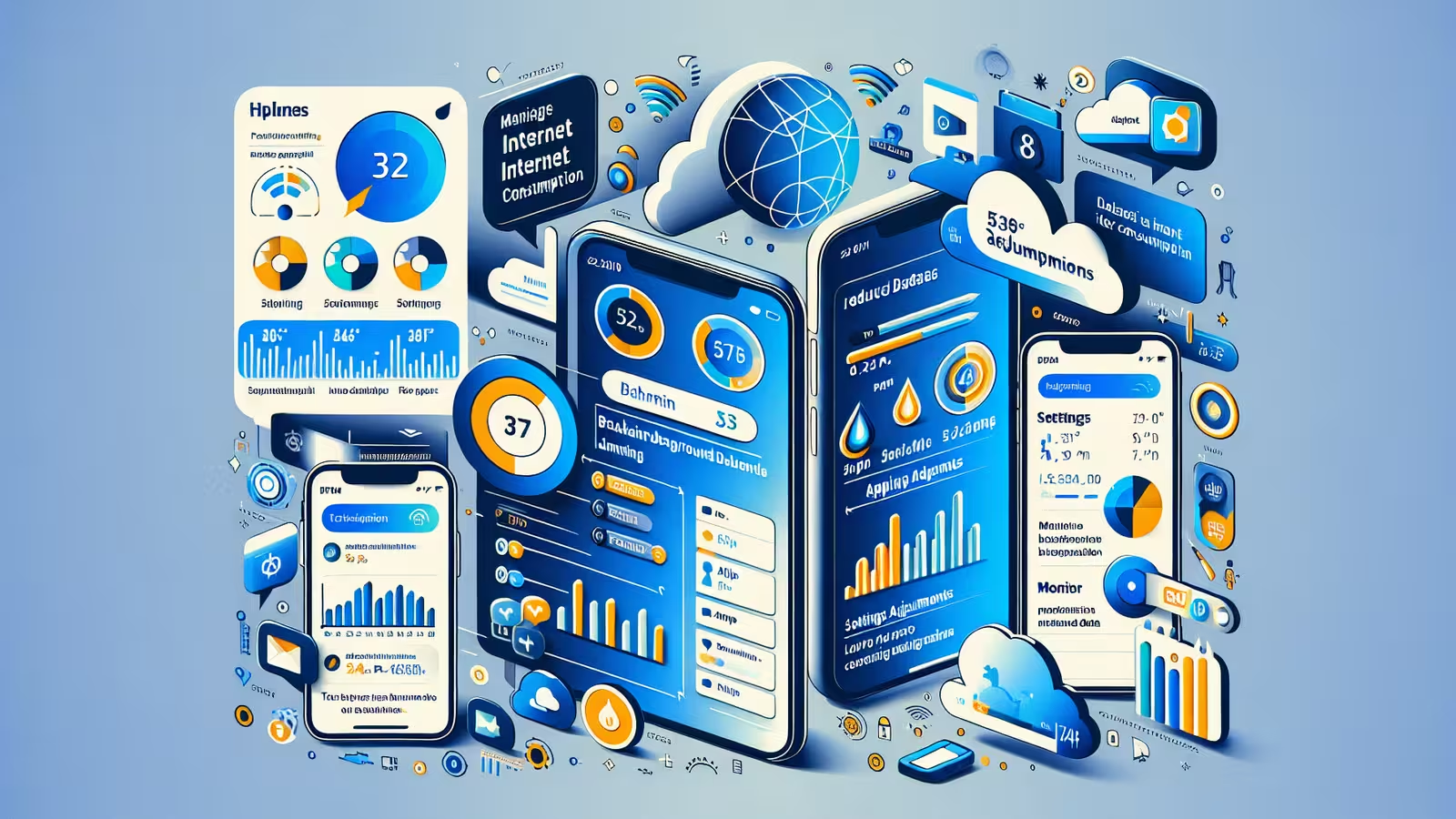3 Minutes
In today's digital world, smartphones have become an essential part of daily life. As the use of these devices continues to rise, mobile internet consumption has also increased significantly. Proper data management not only helps reduce internet costs, but also enhances the overall user experience. In this article, we explore practical solutions for managing and minimizing internet usage on smartphones.
Key Technologies and Innovations in Data Management
Data Saver Mode
Many smartphones and apps feature a 'Data Saver' mode designed to lower data consumption. By enabling this function, background activities are limited and data is compressed, resulting in reduced mobile data usage.
Lightweight Browsers
Using browsers that employ data compression techniques can also help decrease internet usage. For example, Opera Mini compresses web pages, which significantly reduces data consumption while browsing.
Practical Applications and Use Cases
Limiting Background Activity
Multiple apps continue to use data in the background even when they are not actively in use. Restricting these background processes can help optimize your mobile data usage. To do this:
- Go to your smartphone's settings.
- Select 'Mobile Data' or 'Data Usage.'
- Identify high-usage apps and restrict their background data activity.
Using Lite Versions of Apps
Some applications offer lightweight versions that are optimized for lower data usage. For instance:
- Facebook Lite: A lighter version of Facebook that uses less data.
- YouTube Go: A YouTube app that allows you to download videos for offline viewing and manage your data consumption.
Disabling Automatic App Updates
Automatic app updates can consume a significant amount of data. To prevent this:
- Open your app store (such as Google Play) and navigate to settings.
- Set 'Auto-update apps' to 'Over Wi-Fi only' or disable it entirely.
Expert Insights and Industry Trends
Experts suggest that users can reduce costs by monitoring their data usage and utilizing data management tools. App developers are also increasingly creating lightweight and data-efficient versions of their applications to better meet user needs.
Benefits, Challenges, and Future Outlook
Benefits:
- Cost Reduction: Effective data management leads to lower internet expenses.
- Improved Battery Life: Reducing background activity can extend battery longevity.
- Enhanced User Experience: Lower data usage results in faster, more efficient app performance.
Challenges:
- Limited Functionality: Restricting background activity may impact the functionality of certain apps.
- Technical Awareness: Some users may lack familiarity with data management settings.
Future Perspective: As technology advances and user awareness grows, it is expected that more data management apps and tools will be developed. Additionally, mobile carriers may introduce more flexible plans to better accommodate diverse user needs.
Conclusion
Managing internet usage on smartphones not only helps minimize expenses, but it also provides a better user experience. By utilizing the strategies and tools discussed in this article, you can optimize your data consumption and make more efficient use of your mobile internet.
Source: ding



Comments